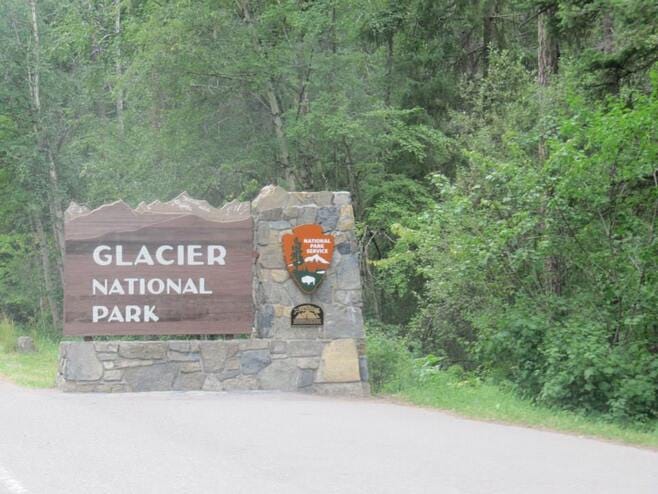Historic Trial Set To Begin In Montana In Groundbreaking Youth Climate Case

The first-ever constitutional climate trial in the United States kicks off next week in Helena, Montana as sixteen young Montanans face off against their state government in the groundbreaking Held v. State of Montana youth climate case. At issue is the state’s conduct of promoting and defending fossil fuel development despite longstanding knowledge of the harmful impacts this has on the climate system. Favoring fossil fuels and turning a blind eye to climate impacts in permitting decisions worsens the climate crisis and amounts to violations of Montana’s constitution, the case argues.
Montana is one of only a handful of US states that has an environmental right enshrined in its constitution. Dating back to 1972, Montana’s constitution explicitly establishes the right to a clean and healthful environment. Under Article IX (Section 1), the state and its people “shall maintain and improve a clean and healthful environment in Montana for present and future generations,” and the legislature must enforce this right and ensure protection of the “environmental life support system.” The right to a clean and healthful environment is also provided for under the constitution’s list of inalienable rights (Article II, Section 3).
But the state’s heavy exploitation of coal, oil and gas threatens this fundamental right. Drilling and mining not only scars the land and pollutes the air and water, but also contributes to dangerous climate change that manifests as devastating drought and wildfires, disappearing mountain glaciers and winter snowpack, warming water bodies and other ecological disruptions.
Several expert witnesses for the youth plaintiffs will testify next week to the specific climate impacts already unfolding in Montana: Ecologist Jack Stanford, professor emeritus at the University of Montana, will speak to the adverse impacts on freshwater systems and hydrology; Steven Running, another professor emeritus at University of Montana and a chapter lead author of the 4th IPCC Assessment Report, will explain how anthropogenic CO2 emissions are harming ecosystems, water and communities; Daniel Fagre, research ecologist who worked extensively in Glacier National Park for the US Geological Survey, is scheduled to testify to the climate impacts on glacial retreat.

Other experts will speak to the harmful health effects resulting from the climate crisis, including specific impacts on children. Doctors Robert and Lori Byron and Dr. Lise Van Susteren are expected to testify on the youth plaintiffs’ side.
Arguments and evidence will be presented explaining how these damaging impacts stem from fossil fuel development; one expert is expected to quantify Montana’s share of greenhouse gas emissions, which largely come from its generation of fossil fuels. The state is home to part of the Bakken shale gas formation and to the largest recoverable coal reserves in the US. Six coal mines continue to operate in the state.
Montana has enacted policies designed to boost fossil fuel extraction and disregard the climate consequences of doing so. In 2011 the state legislature amended two laws to mandate this conduct – the state added provisions into the state energy policy statute to promote increased fossil fuel development, and it inserted a provision into the Montana Environmental Policy Act stating that Montana would not be allowed to consider impacts beyond state borders when doing environmental reviews, which implicitly barred consideration of climate impacts.
The Held lawsuit, initially filed in 2020, challenged both of these policies as contravening the state constitution. But as the state’s attempts to toss the case failed, the 2023 Republican-controlled legislature took swift action to try to block the case from reaching trial. In March the governor signed a bill repealing the state energy policy, and last month the state passed another bill changing the language of the MEPA provision to explicitly prohibit consideration of greenhouse gas emissions and climate impacts both in and outside the state during environmental reviews. Attorneys for the state argued that both of these actions rendered the youth plaintiffs’ claims moot. And while the judge did agree to dismiss the part of the case targeting the state energy policy, she refused to cancel the trial altogether, leaving intact the MEPA-related claim.
The case will be a major test of the state’s constitutional guarantee of the right to a clean and healthful environment. A key question is whether or not this right includes the right to a stable climate system. In her recent ruling, the judge indicated that that she may be inclined to answer that question in the affirmative, writing: “Based on the plain language of the implicated constitutional provisions… it would not be absurd to find that a stable climate system is included in the “clean and healthful environment” and “environmental life-support system”.
If the judge rules in the youths’ favor, she would be declaring the state’s promotion of fossil fuels, and particularly the policy banning consideration of climate and GHG emissions under MEPA, to be unconstitutional. This kind of declaration could have considerable impact not only on energy policy in Montana, but beyond the state as well.
“Although it’s set in Montana and based specifically on Montana law, its repercussions are much, much broader than Montana,” said Sandra Zellmer, an environmental law professor at the University of Montana.
The trial will make history as the first in a climate lawsuit grounded in constitutional claims in the US, and the first in a US climate case brought by youth against their government. “All eyes will be on Montana next week,” said Laura Gehrke, events manager at Our Children’s Trust, an Oregon-based nonprofit law firm that has spearheaded US youth climate litigation.
The trial is scheduled to last two weeks, June 12 – June 23, and will be held at the First Judicial District Court in downtown Helena. A livestream will be available, and more information including how to access the livestream is at bit.ly/MTClimateTrial. Climate in the Courts will be on-the-ground in Helena throughout the two weeks to cover this historic trial.


